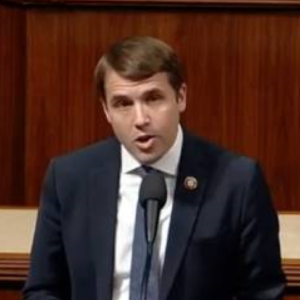President Joe Biden went 4-0 with New Hampshire’s federal delegation on the revised version of the Build Back Better bill when it passed the House on Friday in a party-line 220-207 vote. Despite political headwinds and campaign ads declaring they “stand up to their party,” both Reps. Annie Kuster and Chris Pappas voted for the $739 billion spending package that includes hundreds of billions in green energy subsidies, tax increases on oil and gas, and $80 billion to increase IRS audits and collections.
The so-called “Inflation Reduction Act” — which advocates now acknowledge would have minimal impact on inflation — passed the U.S. Senate on a partisan 50-50 vote with the support of Sens. Maggie Hassan and Jeanne Shaheen.
That brings the total of new federal spending backed by the New Hampshire delegation since Biden took office in January 2021 to around $4 trillion. For Kuster and Pappas, who voted for the original Build Back Better, the figure is closer to $8 trillion.
“Granite State families need relief from high prices, and this legislation is a step toward addressing some of the costs that have put a burden on folks in New Hampshire,” said Kuster. “This transformative legislation will lower health care costs for Granite Staters, combat climate change, and strengthen our economy while reducing the deficit and ensuring the wealthiest corporations pay their fair share in taxes.”
The nonpartisan Tax Foundation found that “budget deficits would increase from 2023 to 2026, potentially worsening inflation,” as more than 90 percent of any deficit reduction wouldn’t begin until 2027. Also, most of the projected 1.2 million in new IRS audits would be among taxpayers earning less than $400,000 a year.
Granite State Republicans were vocal in their opposition.
“The idea that this massive spending bill — loaded with tax hikes that are going to impact business and ordinary Americans — is going to somehow reduce inflation is ridiculous,” said state Senate Majority Leader Jeb Bradley. He compared the spending plan to the New Hampshire state budget.
“To put into context just how enormous this $740 billion spending bill is, compare it to New Hampshire’s bi-annual budget. For FY 22-23, our entire state budget is $13.6 billion. In one night, Washington Democrats spent more money than the State of New Hampshire could spend in over 100 years. This spending bill could fund our entire state government well through the year 2122, and that’s also how long our grandkids’ grandkids are going to be paying off this debt to foreign nations like China.”
Pappas echoed his fellow Granite State Democrats by claiming the legislation “takes on the big drug companies to cap prescription drug costs and extends important tax credits to lower health care premiums. It will lower energy costs and ensure we can achieve energy independence while also reducing our emissions. And while we take these important steps forward, this legislation will also reduce our deficit and fight inflation.”
However, neither Kuster nor Pappas responded to requests to explain how the legislation will “lower energy costs” for average consumers. While it is true homeowners who spend thousands on heat pumps or weatherizing their homes can get a tax break, the legislation does nothing in the near term to lower the costs of heating oil, natural gas, or gasoline.
Instead, as Americans for Tax Reform note, “Democrats have included a 16.4 cents-per-barrel tax on crude oil and imported petroleum products that will be passed on to consumers in the form of higher gas prices.”
The legislation also includes a methane tax which, according to the American Gas Association “could result in the average customer seeing an approximate increase of 17 percent in their natural gas bill.”




